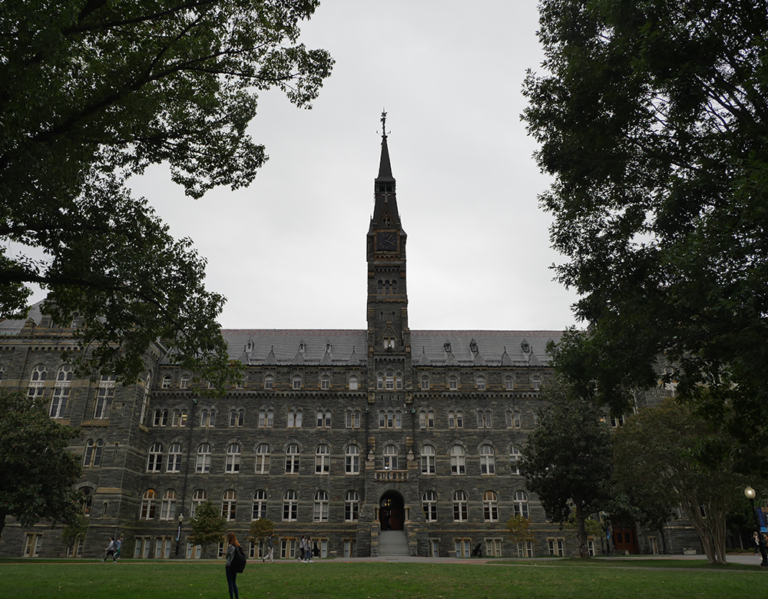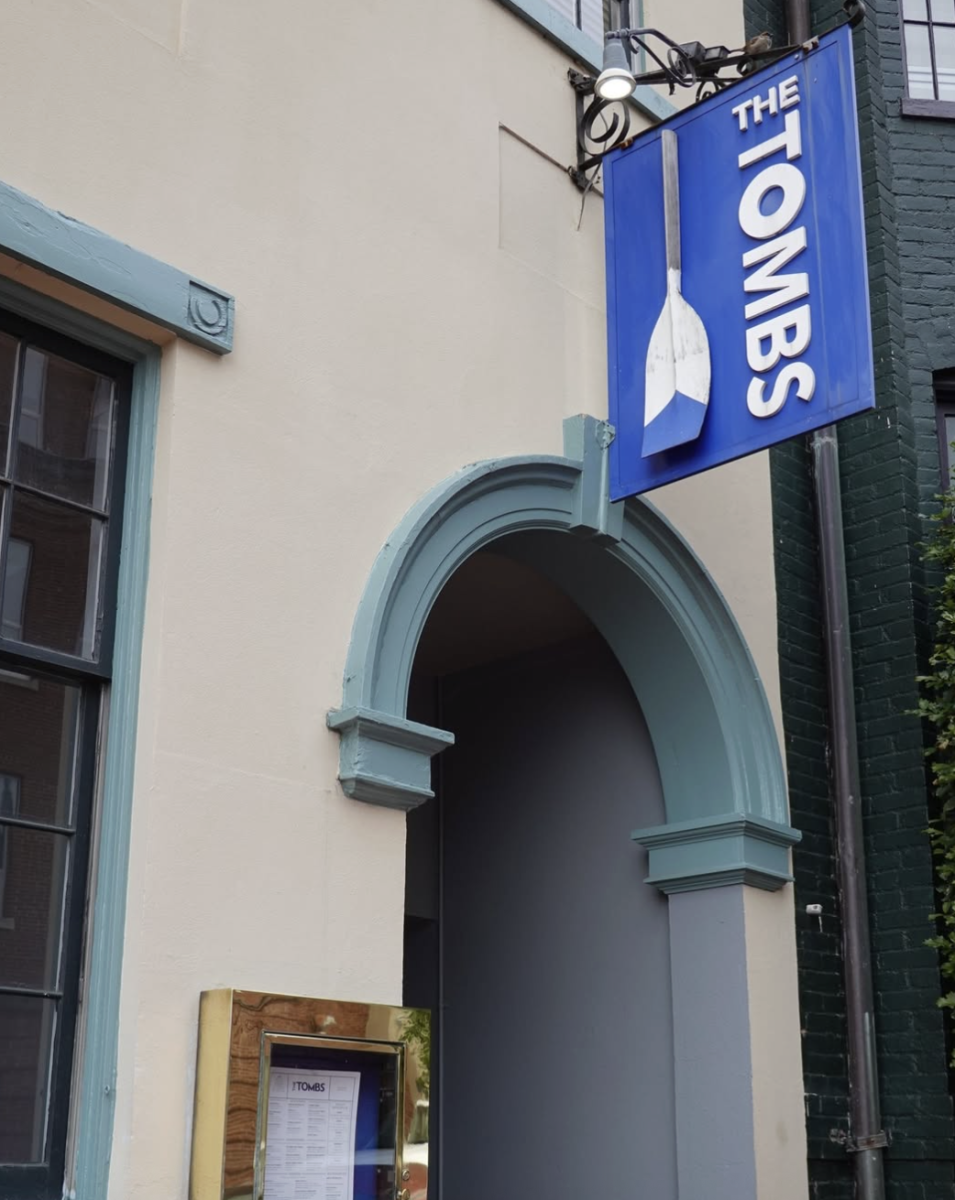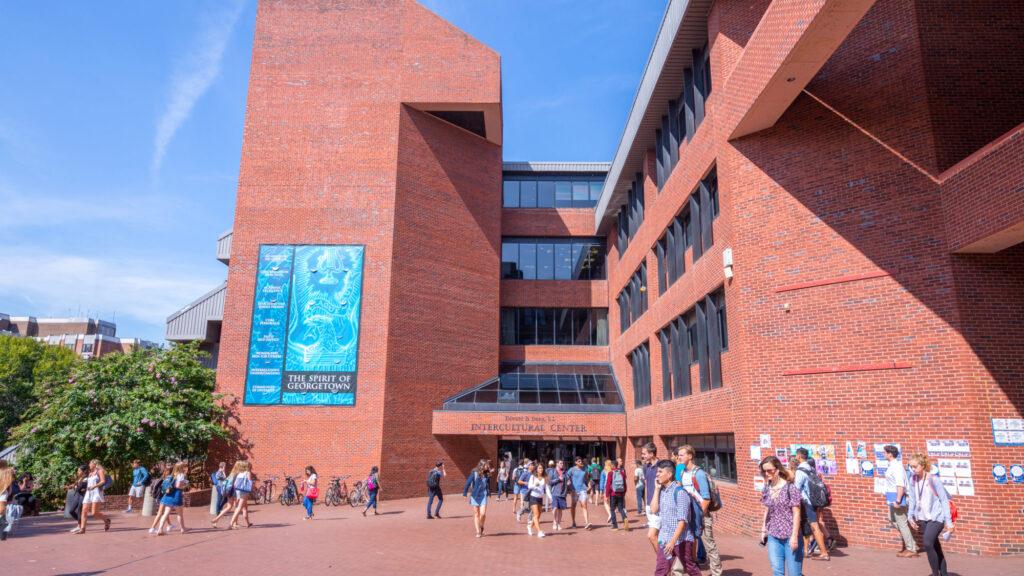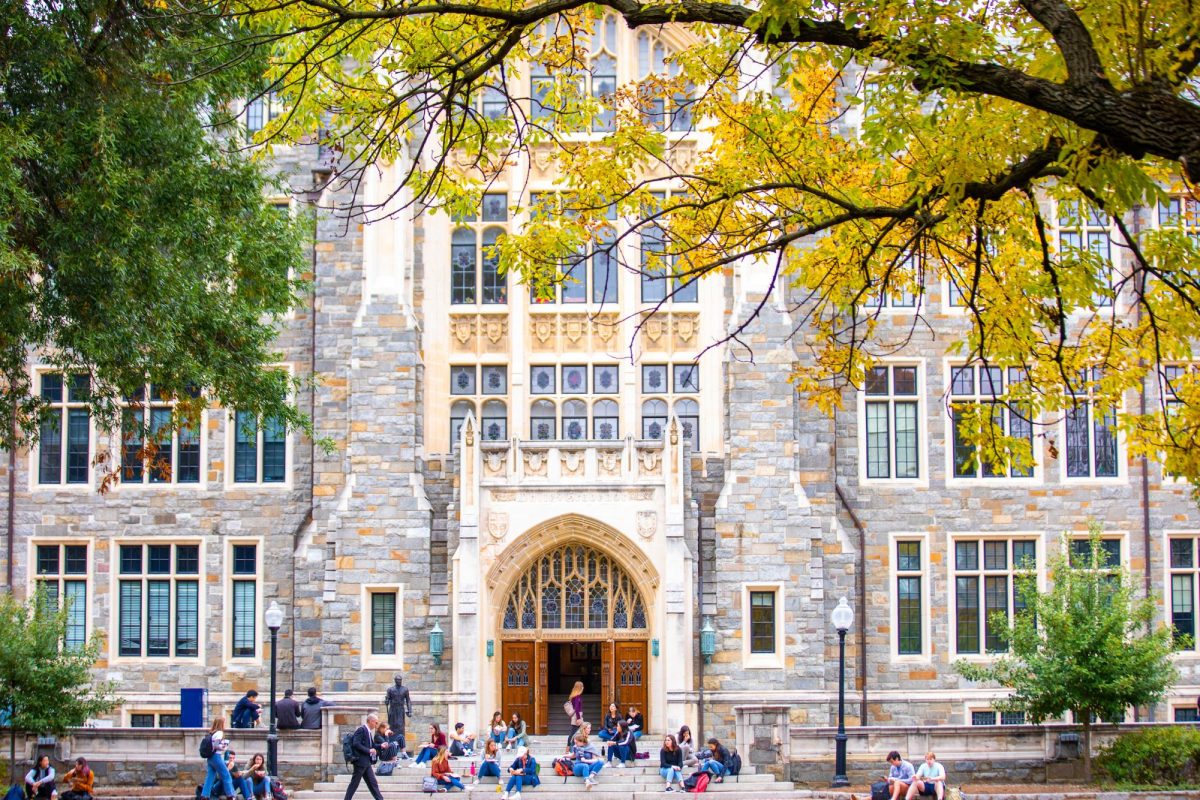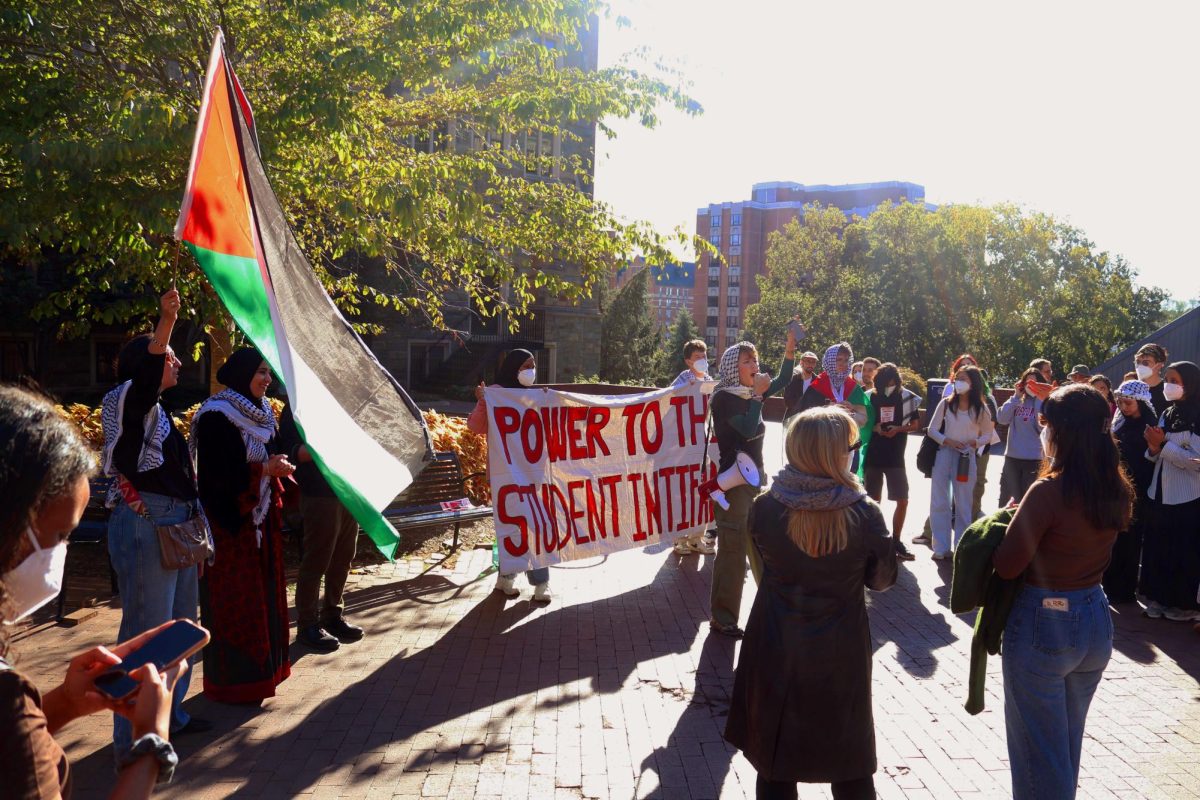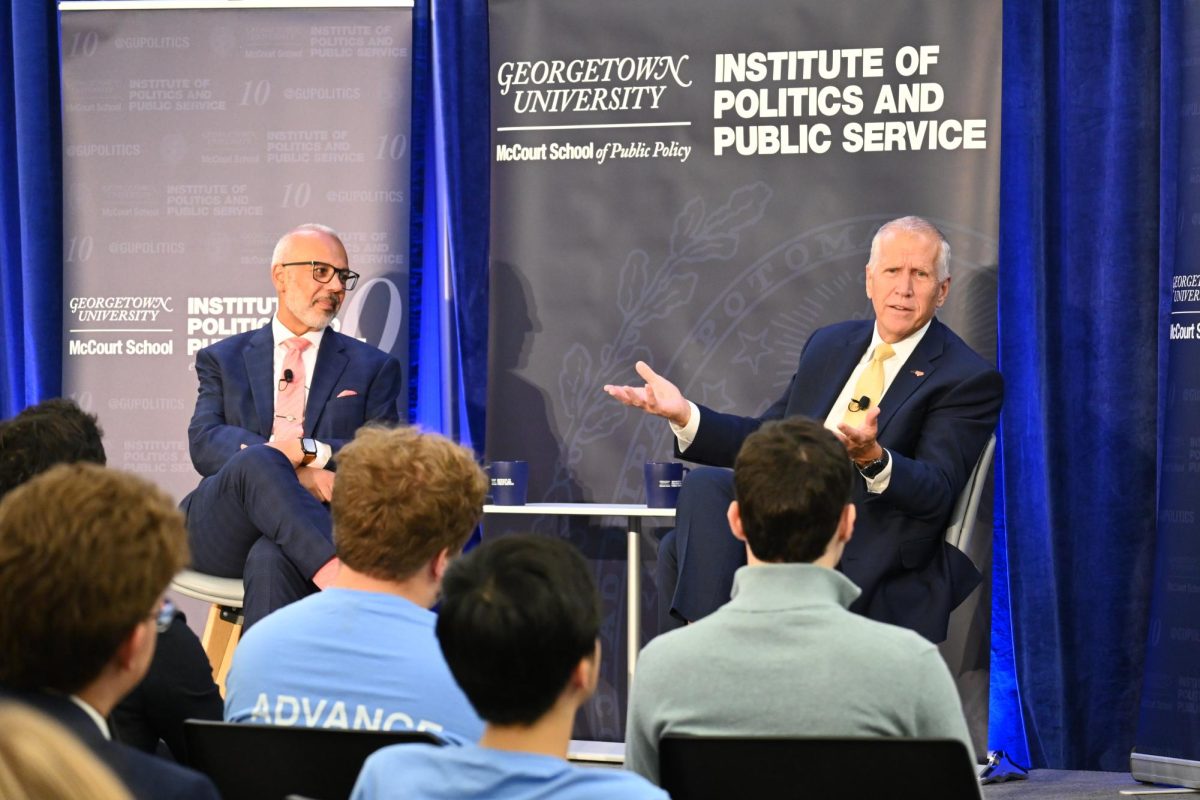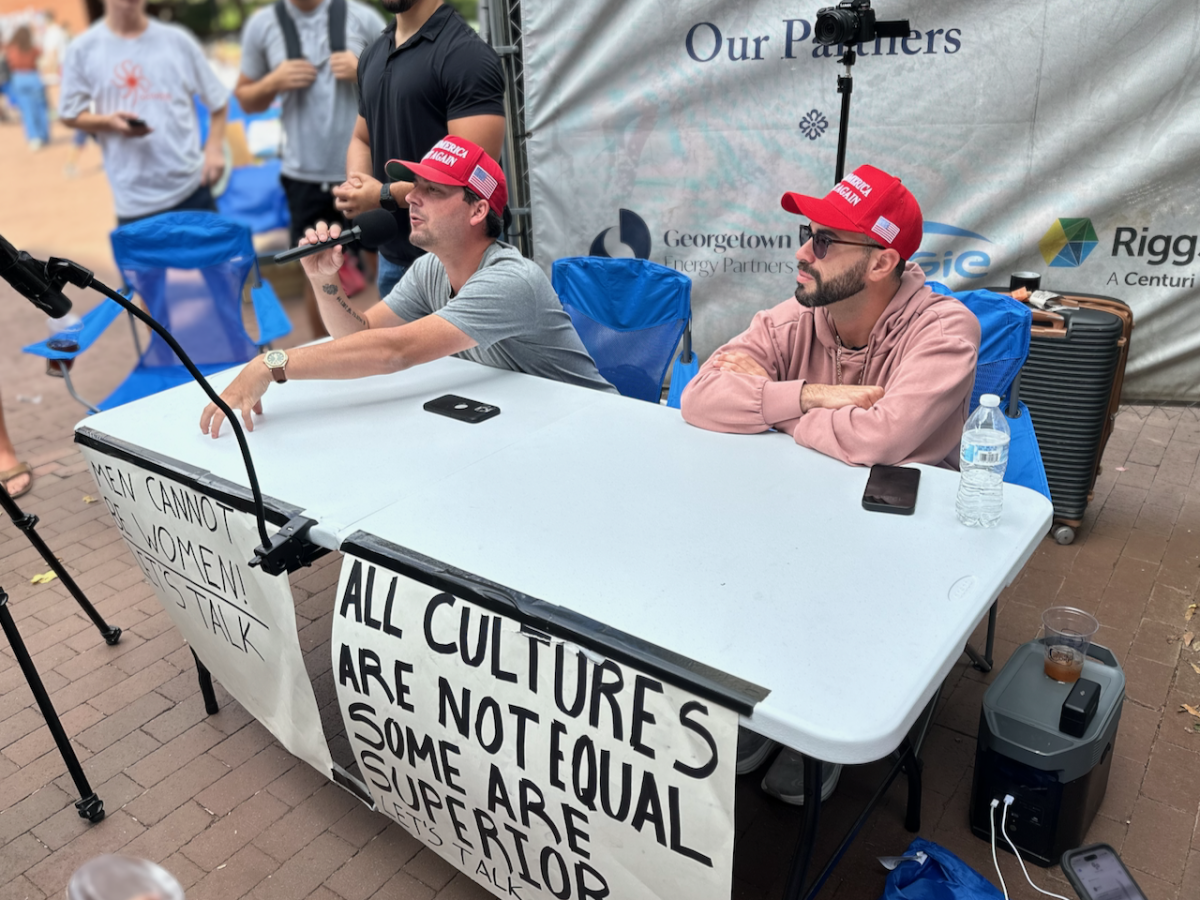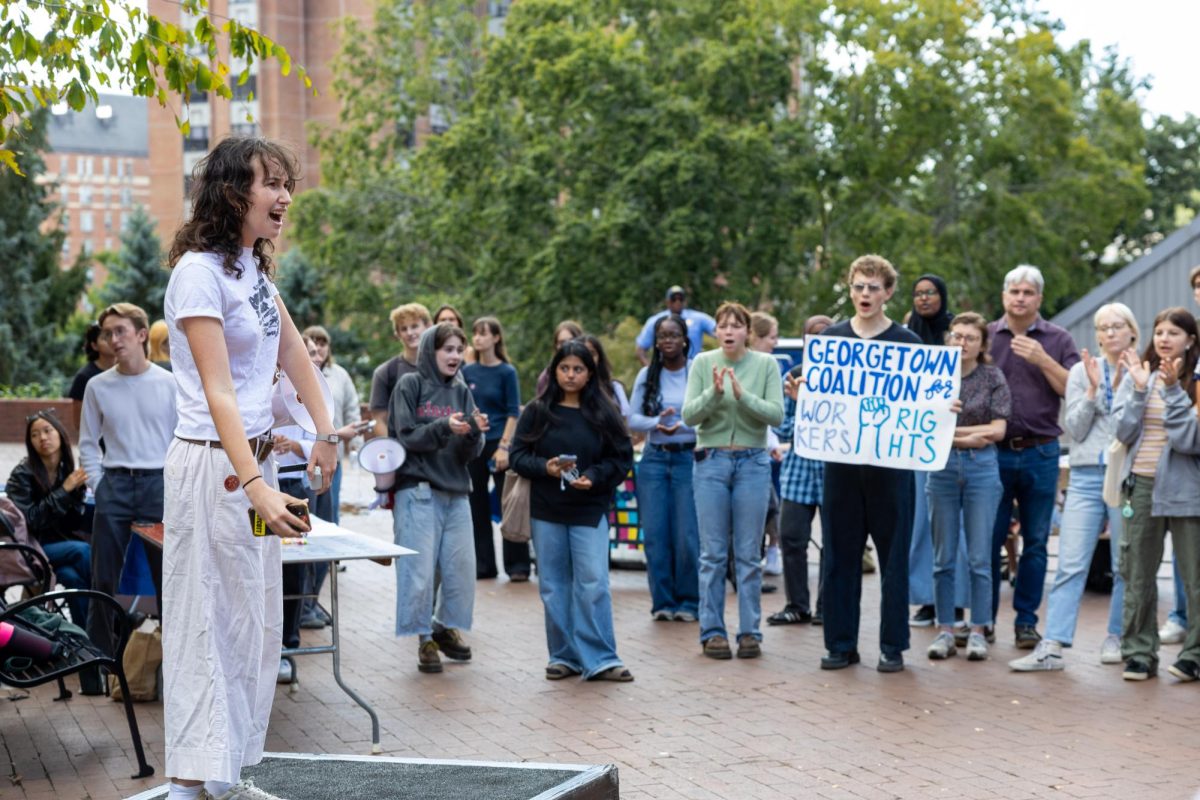Interim President Robert M. Groves defended free speech and interreligious dialogue in an email sent to community members March 25, addressing the March 17 detention of Badar Khan Suri, the Georgetown University postdoctoral researcher, by federal immigration officials.
Khan Suri, an Indian national and postdoctoral fellow at the Prince Alwaleed Bin Talal Center for Muslim-Christian Understanding (ACMCU), was detained by agents from the U.S. Department of Homeland Security (DHS) over social media posts described as “Hamas propaganda” and alleged connections to Hamas leadership. Khan Suri’s wife, Mapheze Saleh (GRD ’26), is the daughter of a former official in Gaza’s Hamas-led government.
Khan Suri is currently in DHS custody at a detention facility in Alvarado, Texas, according to a federal online locator of detainees.
Groves described Khan Suri’s detention as “troubling” and said he was concerned the detention may have violated Khan Suri’s free speech rights.
“We are concerned about the circumstances of his detention and the questions it may raise about issues of free speech,” Groves wrote. “We expect the legal system to adjudicate this case fairly, and we will continue to monitor this closely.”
In court filings, Khan Suri’s lawyers have argued that his detainment was a violation of his free speech and due process rights.
Since Khan Suri’s detention, attendees at multiple on-campus rallies have urged the university to support him and reaffirm community members’ academic freedom.
Groves said the university will defend freedom of expression while condemning harassment and discrimination.
“Our University must foster and nurture a variety of viewpoints on every issue, in classes, in campus discussions,” Groves wrote. “This is the only way for us to get closer to the truth. To do this, the University, as an academic community, needs students and faculty with different worldviews.”
“We must in turn build an environment where all members of our community are free to express their thoughts,” Groves added. “The University has rules that protect our community members’ rights to free and open inquiry, deliberation and debate, even if the underlying ideas may be difficult, controversial or objectionable. We give the widest possible latitude to freedom of expression while respecting its limits, such as harassment and discrimination, which can impede the rights of others to freely participate in the exchange of ideas.”
The community-wide email follows two other emails sent by Groves on Jan. 28 and Feb. 24 addressing federal research funding, the status of international students and undocumented community members and diversity on campus, responding to federal government actions. In these emails, Groves placed Georgetown’s response to federal policy in the context of the university’s Jesuit and Catholic principles of interfaith dialogue and the inherent dignity of each person.
Groves said interfaith dialogue informs the university’s defense of freedom of speech.
“The Jesuit commitment to inter-religious and inter-group dialogue demands that we protect the freedom to articulate ideas and beliefs, that we build a community that respects their presentation, and that we together use the different perspectives to do what the human spirit was designed to do — seek the truth as a way to deepen our understanding of the world around us,” Groves wrote. “The Jesuits do these things for the greater glory of God and to advance the common good.”
Groves said freedom of expression fosters diversity on campus and builds on the university’s Catholic ideals.
“This strengthens our capacity to understand different cultures, to stay alert to the needs of vulnerable persons and populations, and to cultivate a spirit of openness to different perspectives on the issues of the day,” Groves wrote.
“We will always be striving to achieve the aspirations inherent in these faith-based values,” Groves added. “We are but imperfect human beings. But our faiths and our mission demand that we never give up trying.”



